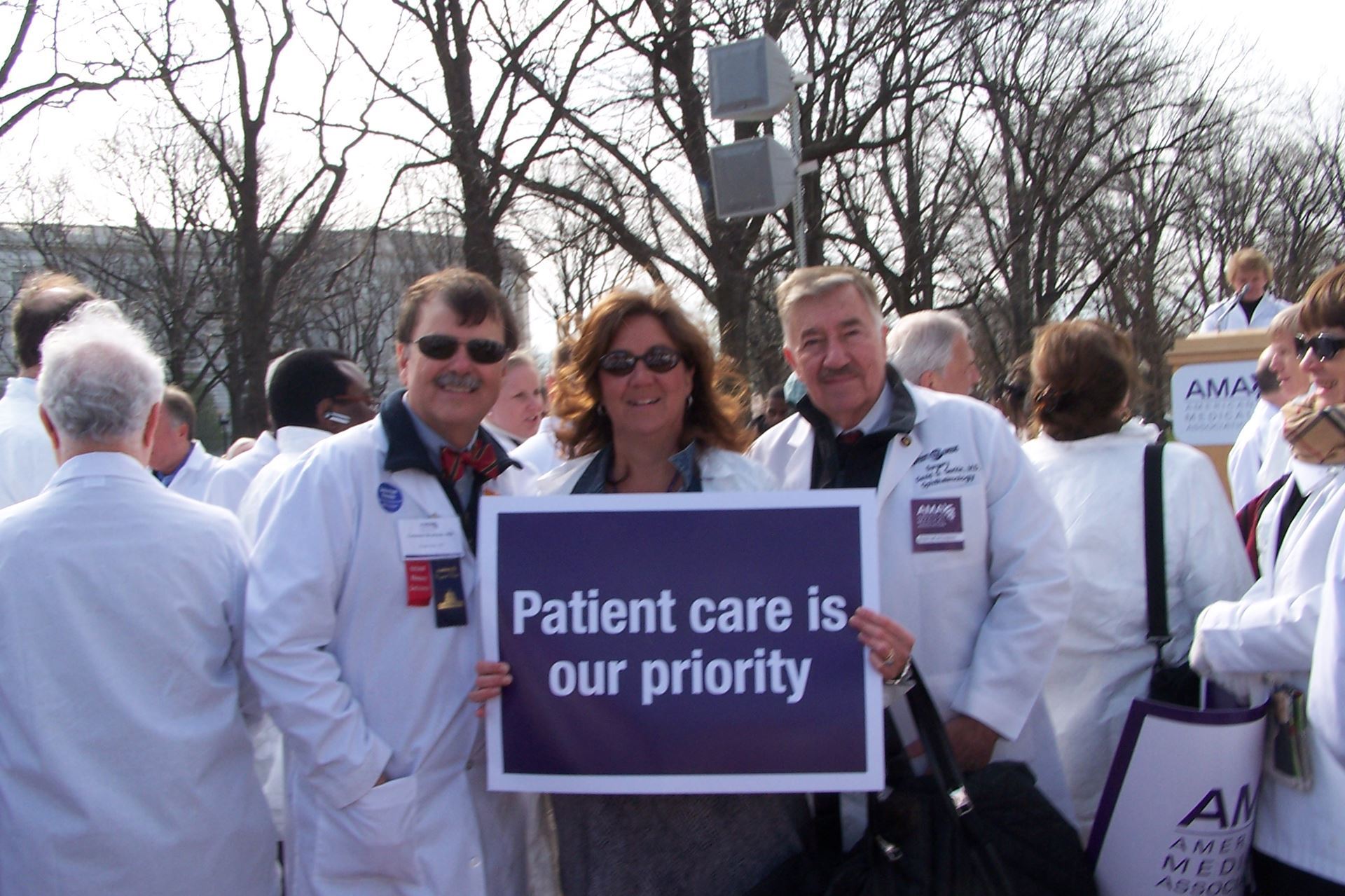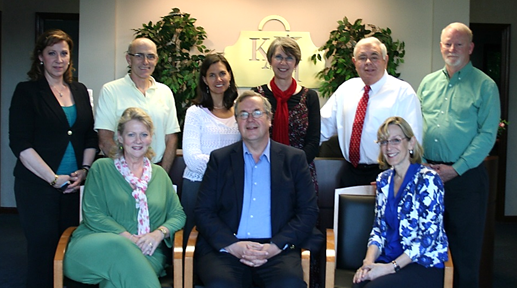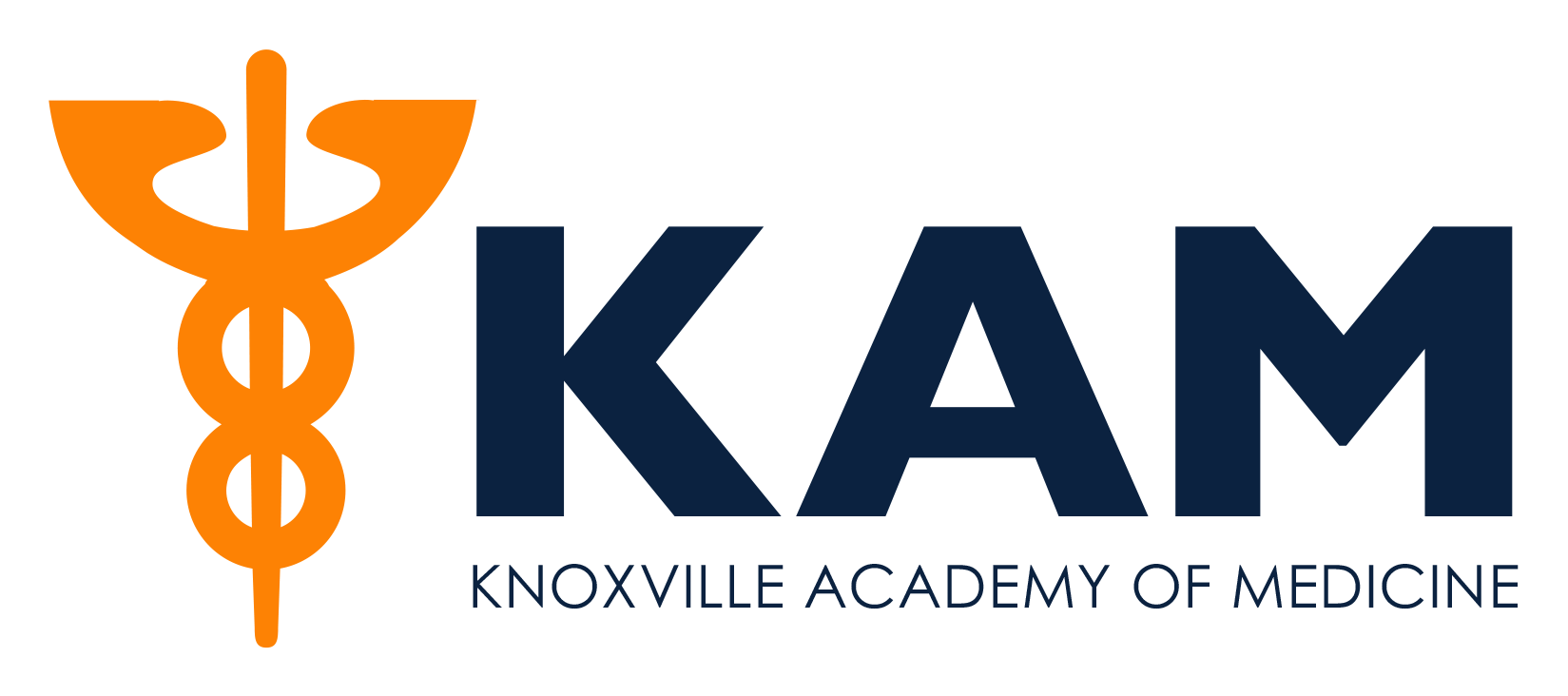THE KNOXVILLE ACADEMY OF MEDICINE
KAM Foundation
The Knoxville Academy of Medicine Foundation (KAMF) is the philanthropic arm of the local medical society, the Knoxville Academy of Medicine (KAM). The Knoxville Academy of Medicine was founded in 1852, and the Knoxville Academy of Medicine Foundation was founded in 1988. KAMF and KAM continually demonstrate leadership in developing community initiatives to improve the health of East Tennessee. KAMF has served as the 501 (c) (3) vehicle through which these projects can be shaped and funded.

Knoxville Area Project Access and Conversation Ready are two additional thriving programs under KAMF:
Knoxville Area Project Access
Knoxville Area Project Access is a broad-based community charity created to provide access to health care for low-income, uninsured individuals in Knox County. KAPA is a program under the leadership of the Knoxville Academy of Medicine Foundation. The KAM Foundation is the philanthropic arm of the Knoxville Academy of Medicine, the medical society for Knox County physicians.
Since 2006, Knoxville Area Project Access has coordinated more than $315 million dollars in donated health care to more than 30,000 low-income East Tennesseans without access to health insurance or government-sponsored program.
KAPA patients receive a full continuum of care administered by a network of over 1,800 physicians and providers, along with all area hospitals, who donate services to help our neighbors in need.
KAPA’s largest yearly fundraiser is the KAPA BootScootin’ Ball
ETQA–Conversation Ready
Three surveys- First, a survey by the Center for the Advancement of Palliative Care (2011) surveyed 800 seriously ill people. They found out one of their top complaints was that they didn’t know what to do when they got home from the doctor’s office 51% of the time. Given that Docere, the Latin root for doctor, means teacher, that means we fail more than we succeed. A second survey, by the California Healthcare Foundation (2012), says 95 percent of patients would like to talk to their doctor about their advance care desires but only 8 % have ever had a doctor ask them about that.
Finally, a study (2013) on cancer care, done by the Institute of Medicine, said that patient’s first two desires were: 1. “Listen to me.” 2. “Tell me the truth about diagnosis and prognosis even if it is unpleasant and uncomfortable.” After the death of her mother, Ellen Goodman, Pulitzer Prize winning columnist of the Boston Globe, realized how much stress she went through wondering what her mother would have wanted. “We talked about everything except one thing: how she wanted to live at the end of her life.” Out of that experience in 2010 was born the Conversation Project, an effort to promote conversations about living into the end of life. In 2014, the Institute of Healthcare Improvement adopted the Conversation Project as a quality initiative to change our death denying culture to be “Conversation Ready” about “What Matters.” In this context come three actions: Engage Patients, Steward their Plans and Respect their wishes at end of life. As one wag commented: “At present, we are perfectly prepared for something totally predictable.”
“We talked about everything except one thing: how she wanted to live at the end of her life.” Ellen Goodman
 Members of Conversation Ready Project: Back row left to right: Leigh Sterling, Marty Prince, MD, Annette Mendola, PhD, Lynn Osterlund, MD, Jack Lacey, MD, David Wooten, MD Front row left to right: Becky Dodson, Greg Phelps, MD, Jacque Prince Not pictured: Danielle Dufur
Members of Conversation Ready Project: Back row left to right: Leigh Sterling, Marty Prince, MD, Annette Mendola, PhD, Lynn Osterlund, MD, Jack Lacey, MD, David Wooten, MD Front row left to right: Becky Dodson, Greg Phelps, MD, Jacque Prince Not pictured: Danielle Dufur
The Knoxville Academy of Medicine Foundation has enrolled as a pilot site in one of 23 sites across the US where the Institute for Healthcare Improvement is engaging in Conversation Ready. The collaborative project involves area hospitals, providers and other institutions. The IHI is very data driven, so the project includes, frequent evaluations of current state and interventions for improvement. The physicians and staff involved are also heavily involved in education oriented towards the providers, the community and patients. The goal is to make advance care plans as much a part of the medical record as allergies. Conversation Ready is also collaborating with etHIN to work towards ensuring advance directives show up in community medical records. In Lacrosse, Wisconsin, where a very similar project has been running for 25+ years, the effort shows results that include close to 90% of the community having advance directives. Nationally, a patient averages over 30 days in the hospital in their final two years of life, in Lacrosse, the number is 13 days. Spearheaded by the Gundersen Clinic, the protocol there calls for three “asks.” Once when the patient is young and healthy, again with age > 55 or onset of chronic illness and a third time when a potentially life ending illness is encountered. The Knoxville Academy of Medicine is very pleased to be part of this national pilot program. For additional information please check with the Knoxville Academy of Medicine or see the following sites: IHI.org, conversationproject.org, endoflifecaretn.org.

